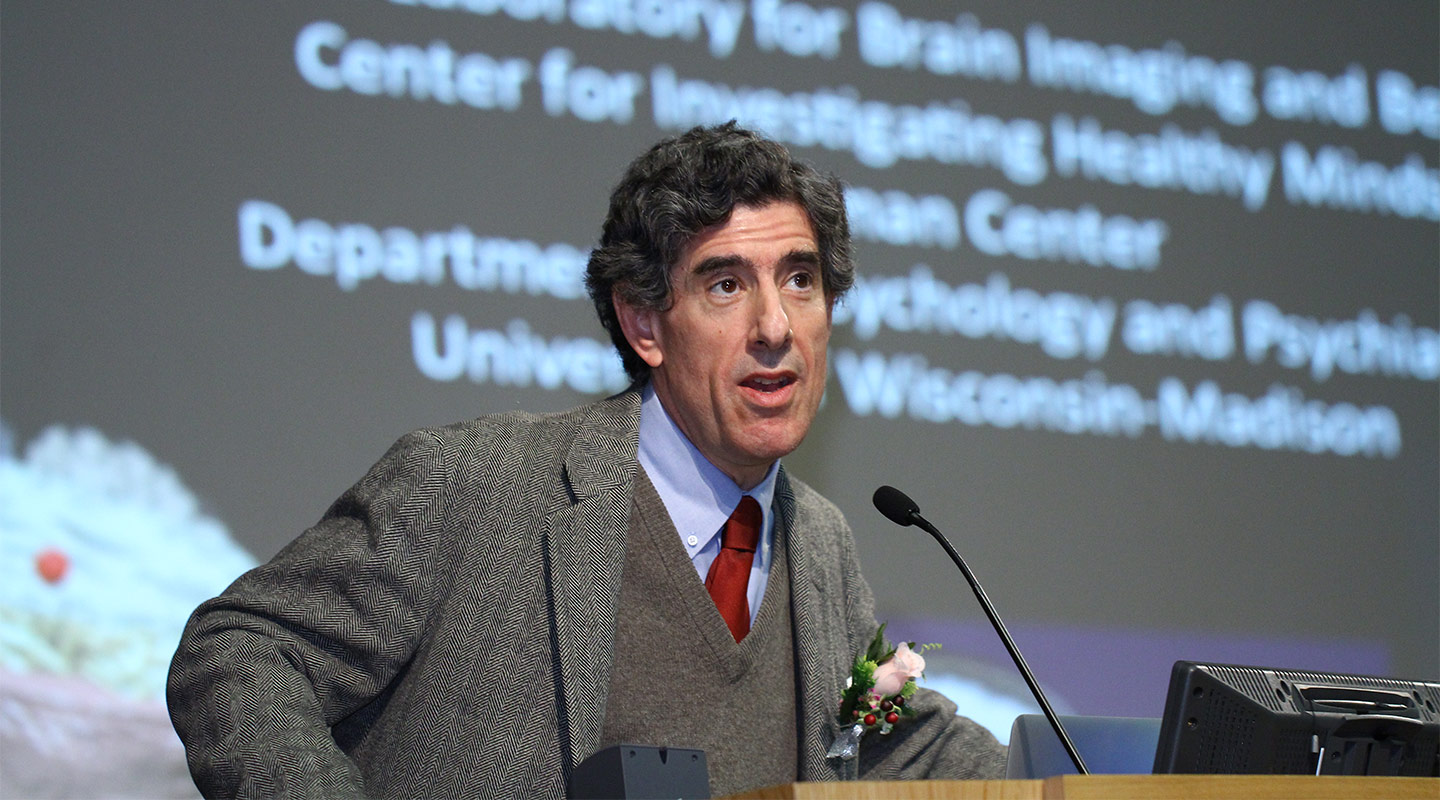Change the Brain by Transforming the Mind

On 6 March 2013, world-renowned psychologist and neuroscientist Prof. Richard J. Davidson, William James and Vilas Research Professor of Psychology and Psychiatry of the University of Wisconsin-Madison, came to the Shaw College of CUHK to give a lecture entitled “Change the Brain by Transforming the Mind” as the Sir Run Run Shaw Distinguished Visiting Scholar of 2012–13.
Professor Davidson studied the differences between expert practitioners of mindfulness meditation (those with at least 10,000 hours of meditation) and the uninitiated, with the aid of MRI technology and careful monitoring of the brain’s electrical and chemical responses, in a range of psychological experiments from attention to compassion. His research has found correlations between the practice of meditation and mental stimulation and activity. It was also found that meditation results in observable altruistic or prosocial behavioural changes even for relatively short term of meditation practice.
Meditation was found to have enhanced subjects’ attention to details. In psychology, attentional blinks refer to the lapse of attention when one is too focused on one thing. Thus, when shown a quick succession of a mixture of letters and digits and told to pay attention to the digits, we often notice the first digit that appears but sometimes miss the digit that appears next. Our attention on the first digit is said to have clouded or blocked our perception of the second. One can of course be trained to do better on it. In a series of attentional blink experiments, Professor Davidson tested two groups of subjects (one of meditation practitioners and the other a control group) and found that the meditation group consistently did better on spotting details, thus overcoming the effect of attentional blinks.

In another set of experiments on “compassion training”, subjects were asked to meditate on the suffering of their loved ones, themselves, their enemies, a difficult person and all human beings, in that order, and then wish for their deliverance from suffering. Positive altruistic changes in behaviour were observed in the subjects afterwards, providing proof that changing the mind changes one’s behaviour, and for the better too.
Other scientific evidence has also accrued as to the peripheral biological effects of meditation. For example, meditation had been shown to have a positive effect on the inflammation of the lungs which is a common cause of asthma. Activities in the insular cortex region of the brain, which controls the organs below the neck, had been shown to be dramatically influenced by compassion meditation.
Educators should take heed of Professor Davidson’s “kindness curriculum” which was developed to apply the mind-training techniques to small children so as to develop their learning capability and emotional qualities. In his work done so far, it has been demonstrated that intervention has enhanced the children’s ability to pay attention, regulate their emotions and practise kindness. Training in mindfulness and kindness has generally fostered prosocial and cooperative behaviour among the young children under study.
This article was originally published on CUHK Homepage in Mar 2013.

